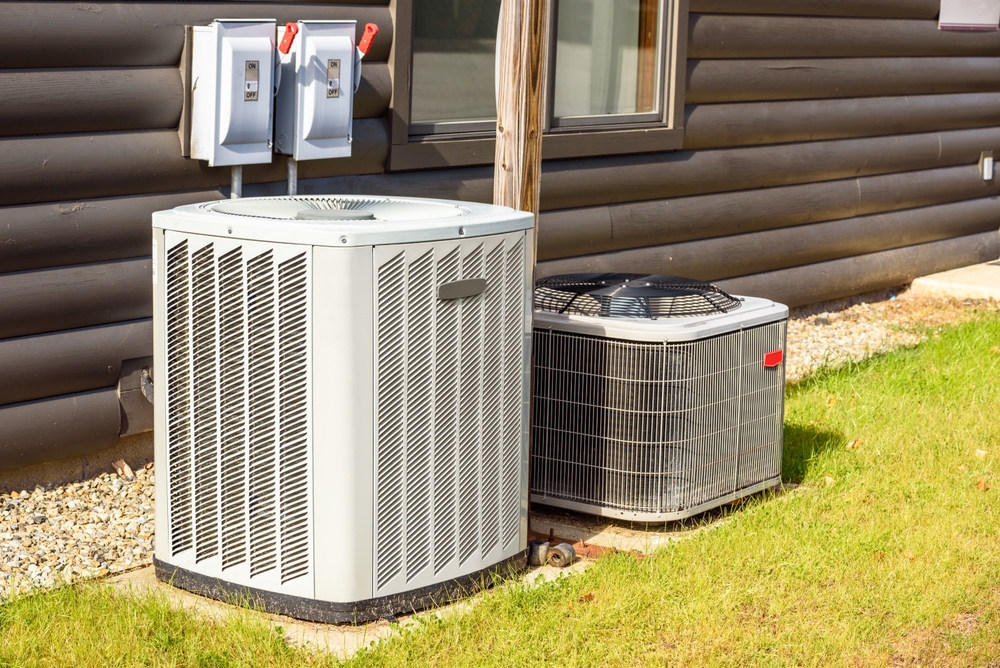
Choosing the Right HVAC System: Factors to Consider When Choosing a New System
August 26, 2024 1:48 pm Leave your thoughtsWhen it comes to maintaining comfort in your home, selecting the right HVAC system is crucial. Whether you’re building a new home or upgrading an existing system, the choices can be overwhelming. This guide will help you navigate the process and choose the best HVAC systems for your home, taking into account key factors that will impact efficiency, comfort, and cost.
Types of HVAC Systems
There are several types of HVAC systems to choose from, each with its own set of benefits and drawbacks. Understanding these options will help you determine how to choose the best HVAC system for your needs.
Central Air Conditioning and Heating Systems
Central systems are the most common and consist of a furnace or heat pump connected to an air conditioner. This type of system uses ductwork to distribute heated or cooled air throughout your home. Central systems are known for their efficiency and ability to maintain consistent temperatures.
Ductless Mini-Split Systems
Ductless mini-split systems are an excellent option for homes without existing ductwork. They consist of an outdoor unit connected to one or more indoor units. This type of system allows for zoned heating and cooling, meaning you can control the temperature in individual rooms independently.
Heat Pumps
Heat pumps can both heat and cool your home by transferring heat between the indoors and outdoors. They are highly efficient and are a good choice for moderate climates. Heat pumps can be used with or without ductwork, depending on the system type.
Hybrid Systems
Hybrid systems combine a heat pump with a furnace to optimize efficiency. During milder months, the heat pump handles heating and cooling, while the furnace kicks in during colder weather. This type of system can be a cost-effective solution for varying weather conditions.
Geothermal Systems
Geothermal HVAC systems use the earth’s natural heat to provide heating and cooling. They are known for their high efficiency and low operating costs but come with a higher initial investment. Geothermal systems require a ground loop installation, which can be costly and invasive.
Factors to Consider When Choosing an HVAC System
When deciding on the best HVAC system for your home, several factors come into play. Evaluating these factors will help you make an informed decision that meets your comfort and budgetary needs.
1. Climate
Your local climate is a significant factor in determining the most suitable HVAC system. For example, if you live in a region with extreme temperatures, a central air system or heat pump might be more appropriate. In contrast, a ductless mini-split system could be ideal for milder climates or homes with specific zoning needs.
2. Home Size and Layout
The size and layout of your home will influence your HVAC system choice. Larger homes may require a central system with multiple zones, while smaller homes might be efficiently served by a ductless mini-split or a smaller central unit. Proper sizing is crucial for efficiency and comfort, so it’s essential to consult with a professional for a load calculation.
3. Energy Efficiency
Energy efficiency is an important consideration, as it impacts both your comfort and your utility bills. Look for systems with high Seasonal Energy Efficiency Ratios (SEER) for air conditioners and high Annual Fuel Utilization Efficiency (AFUE) ratings for furnaces. Energy-efficient systems can help you save money in the long run and are often eligible for rebates or incentives.
4. Installation Costs
The initial cost of purchasing and installing an HVAC system can vary widely. While geothermal systems and high-efficiency models may have a higher upfront cost, they often lead to lower operating costs over time. Be sure to factor in installation costs and potential rebates when budgeting for your new system.
5. Maintenance and Longevity
Different HVAC systems have varying maintenance requirements and lifespans. Regular maintenance is key to keeping your system running efficiently and extending its lifespan. Choose a system that fits your maintenance preferences and consider the long-term costs of upkeep.
6. Noise Levels
Noise levels can impact your comfort, especially if the HVAC system is located near living or sleeping areas. Some systems, like ductless mini-split units, operate more quietly than traditional central systems. Check the noise ratings of different models and consider how the noise level will affect your home environment.
7. Environmental Impact
If you’re environmentally conscious, consider the environmental impact of your HVAC system. Geothermal systems and high-efficiency heat pumps have a lower environmental footprint compared to traditional systems. Look for models with eco-friendly certifications and consider their overall impact on your carbon footprint.
Professional Installation and Maintenance
Once you’ve selected the right HVAC system for your home, professional installation is crucial. Proper installation ensures that the system operates efficiently and effectively. Additionally, regular maintenance by a qualified technician will help keep your system in top condition and prevent costly repairs.
Conclusion
Choosing the right HVAC system involves careful consideration of various factors, including climate, home size, energy efficiency, and costs. By understanding the different types of HVAC systems and evaluating your specific needs, you can select the best option for your home. Remember to consult with a professional to ensure proper installation and maintenance for long-lasting comfort and efficiency. With the right system in place, you can enjoy a comfortable home environment year-round.
Need HVAC Services in Woodbine, KS?
Family- and locally owned and operated since 1996, we have built a reputation for delivering excellent workmanship, dependability, and professionalism to the residents and commercial businesses in the Woodbine and surrounding areas. Our team of highly skilled and knowledgeable technicians specializes in air conditioning and heating system installation, repair, and replacement; boiler and furnace maintenance; and mini-split and general HVAC system care. All of our technicians are fully licensed, bonded, and insured. Contact us today to learn more about what we can do for you!
Categorised in: HVAC Installation, HVAC service
This post was written by Writer
